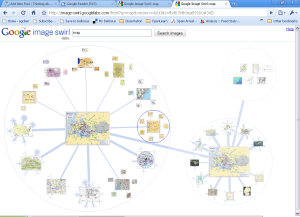I hesitate to say this because I am white and I am English, but I am calling bullshit on much of the discussion I have seen about Go Set a Watchman. The discussion about this book should not be about whether or not it should have been published or whether or not it’s a good book. The discussion should be about racism.
We should be talking about institutional racism (a subject the book raises explicitly and addresses unsatisfactorily). We should be talking about what we do when good people we love expose themselves as racists (the central topic of the book and presumably of Lee’s life, and one it addresses discomfortingly). We should be talking about what we do about changing racist communities we are part of (again a central topic of the book, and one it answers weakly). We should be talking about being a White Ally, especially about being a bad White Ally, and about racism in the Northern States (all things the book exposes, possibly without meaning to). We should be talking about hindsight bias and revisionism, confirmation bias and blind-spots (again, exposed on every page). We should be talking about the links between the easy assumptions of class superiority that Lee makes and the racism she rejects.
These are the elephants in the room and the fact that the conversation is not about any of these things tells us so. And the more that people make the conversation about other subjects, the more they are sticking their fingers in their ears and saying “la, la, la I can’t hear you”.
So, yes, the book should most certainly have been published and yes my friend it’s worth reading. I will go further – I think you should read it because of Charleston, because of Portland, because of Ferguson, because of Mark Brown, because of Trayvon Martin, because all of this is happening now 50 years after Lee drafted the manuscript and submitted it to a publisher.
Is it well written? – Yes, but not as well written as Mockingbird. Get over it.
Will it change your view of Mockingbird? I don’t know.
It changed my view of Mockingbird, though I want to read that book again. I now think of it as a fairy story and as a dangerous one at that because it’s a way for people to say “Oh, I’m not a racist, I’m Atticus, or Jem, or Scout”. I now see the artifice in Mockingbird: I see Scout’s clear-eyed wisdom as artificial, no six year old was ever that wise. I see also the naïveté in the assumption that Atticus and the Finches could possibly not be racist in a society where people owning other people was still a matter of living memory. It’s hard to read Watchman as a draft not a sequel but at one point in Watchman the adult Jean Louise says to Calpurnia “Please, I’ve got to know. Did you hate us?” and shivers go up your spine as the silence lengthens. Having said that, I link below to clearer-eyed reviews of Mockingbird which see it in a more nuanced light.
Did Lee give full and knowing consent? – I don’t know. She seems worryingly vulnerable, so possibly not. I am however certain that circumstances have given us a double gift, and we should read Go Set a Watchman, engage with it, and be grateful.














You must be logged in to post a comment.